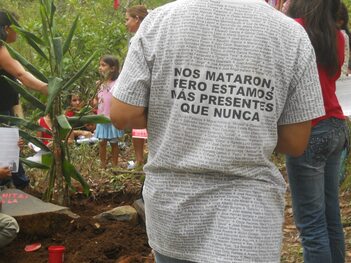
Land & Labor Acknowledgment
The stolen land we live on in the Portland Metro area are the traditional homelands of the Chinook, Cowlitz, Clackamas, Kalapuya, Molalla, Multnomah, Tualatin, Wasco and many others. A Land Acknowledgement is important beyond the statement itself––it is about acknowledging the original and continued protectors and caretakers of this land, many of whom were and continue to be persecuted as they protect the land and water for all of us. It allows us to sit in gratitude for their energy and commitment to caring for this space and reflects our understanding that we are part of an interconnected web, meaning we are now also responsible for caring for this space for generations to come.
In addition to acknowledging the land and those that have been here since time began, we must also remember our stolen siblings from Africa whose labor built the vast wealth of this country. These two communities and the atrocities committed against them are intrinsically intertwined due to our existence within a white supremacist world. Everything we have is due to stolen land and stolen labor, and every system and institution that impacts our lives is built upon this legacy. It is our job to speak that truth into spaces so that we can begin to heal. However, this acknowledgement is not the end of this conversation. It is not enough to placate ourselves into thinking that because we remember, we have done enough. BIPOC people continue to actively resist the institutions and systems that have set the landscape for our continued targeting. We encourage our white community members to learn more about ways you can actively end the exploitation of Black and Indigenous lives.
To learn more about efforts towards land reparations and indigenous solidarity, click here.
The stolen land we live on in the Portland Metro area are the traditional homelands of the Chinook, Cowlitz, Clackamas, Kalapuya, Molalla, Multnomah, Tualatin, Wasco and many others. A Land Acknowledgement is important beyond the statement itself––it is about acknowledging the original and continued protectors and caretakers of this land, many of whom were and continue to be persecuted as they protect the land and water for all of us. It allows us to sit in gratitude for their energy and commitment to caring for this space and reflects our understanding that we are part of an interconnected web, meaning we are now also responsible for caring for this space for generations to come.
In addition to acknowledging the land and those that have been here since time began, we must also remember our stolen siblings from Africa whose labor built the vast wealth of this country. These two communities and the atrocities committed against them are intrinsically intertwined due to our existence within a white supremacist world. Everything we have is due to stolen land and stolen labor, and every system and institution that impacts our lives is built upon this legacy. It is our job to speak that truth into spaces so that we can begin to heal. However, this acknowledgement is not the end of this conversation. It is not enough to placate ourselves into thinking that because we remember, we have done enough. BIPOC people continue to actively resist the institutions and systems that have set the landscape for our continued targeting. We encourage our white community members to learn more about ways you can actively end the exploitation of Black and Indigenous lives.
To learn more about efforts towards land reparations and indigenous solidarity, click here.
